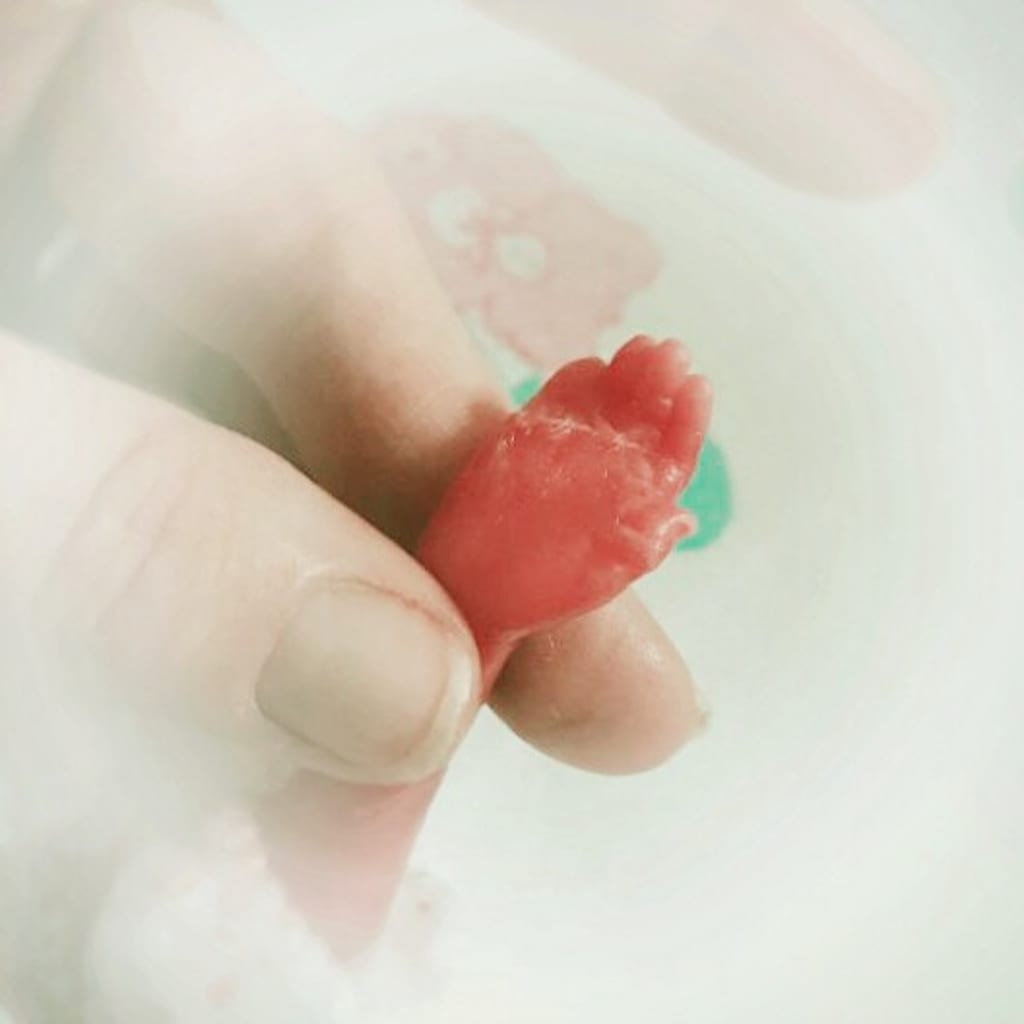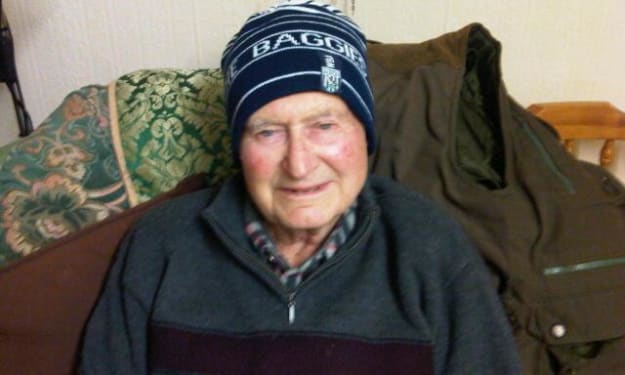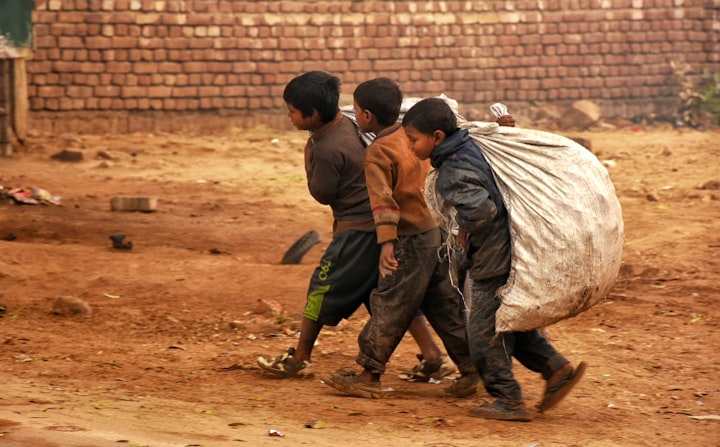Stillborn? Still born - Fionnuala's story
What it's like to lose your first child.

Today I visited my daughter’s grave.
A short sentence. Only six words. Six words no parent would ever hope to speak, but it’s our reality.
Four years ago, just a few weeks before Christmas, my wife and I lost our daughter, Fionnuala, at just 22 weeks.
I’ll never forget the excitement I felt the day Colleen told me she was pregnant. The unadulterated joy of new life, of unconditional love. It took serious willpower not to walk out the door and tell the world.
Friends and family were, of course, delighted at the news of our first child. Congratulations came with the customary warnings of sleep deprivation that accompany any new arrival.
This is familiar to people throughout the world. Babies are born every day and every one is met with a heady mix of hope and joy.
Around the beginning of December, US TV drama This is Us aired for the first time in the UK.
Intrigued, having watched a trailer, I tuned in. Colleen had already gone to bed, exhausted by the constant movement of Fionnuala’s energetic limbs.
Out of the blue came a poignant scene, one of those pieces of art that leaves you in stunned silence.
The televisual equivalent of a piece of writing that makes you set a book down and sit in reverence for a moment or two.
A mother, expecting triplets, had lost one of the children during labour. The distraught father was being counselled by the doctor, who himself had lost a child many years ago. It left me breathless.
I still don’t know why it gripped me so convincingly that night. Maybe it was the fact that we were expecting a child.
Maybe it was the potency of the words used, or just a powerful piece of acting. Its poignancy was not lost on me in the weeks that followed.
We arrived for our 20-week scan bursting with hope. Colleen, admittedly, had been worried, but I was still riding a wave of excitement, giddy on the high of expectant fatherhood.
An erratic appointment followed. Our midwife found it difficult to get a good scan as Fionnuala was not assuming a convenient position.
We joked that she was like her father, avoiding the camera, or like her mother, unable to sit still, but a feeling of unease was hard to shake.
Finally, the midwife confirmed a heartbeat and we could see her moving, but she was unable to get all the required information.
We became more distressed and were ushered into a room across the corridor where midwives with whom we were more familiar attempted to calm our rising anxiety.
In our haste, we hadn’t been able to get any photos from the scan. They had not said anything was specifically wrong, but we were worried.
Sensing this, the midwife arranged an appointment for the Monday morning, just three days later. I reassured Colleen everything would be fine. In hindsight, it was myself I was attempting to placate.
We were met with inevitable well-meaning questions about the appointment over the weekend.
I had my lines rehearsed, but my voice betrayed my concern as I relayed the news that the midwife had been unable to confirm all that she needed to.
Everyone was quick to reassure me, some even retelling their own stories of having to return for an extra scan. This set my mind at ease a little and I was upbeat as we returned to hospital on Monday.
Then things changed.
In quiet moments, I sometimes still hear the words Dr Mary Murnaghan said. I remember the deafening silence descending on the room, the drawing of breath, the sudden change in tone.
“Guys, I have some bad news.”
I can only describe what I felt in the minutes that followed as magnified reality. The rumble of chatter from the waiting room fading far into the background.
I could feel pressure on the back of my neck as my blood ran cold and the grip of Colleens hand in mine intensified as the doctor explained.
Fionnuala’s heart had stopped. I remember the only word I could find as my heartbroken wife collapsed into my arms.
“How?”
We listened grimly to the consultant as she explained what was to follow and the choices we had to make. We listened, hearts breaking.
I wrapped my arms around her and tried to reassure her everything would be okay. Futile words against the desolation. Our beautiful daughter, who had known nothing but love, was gone.
We made our way to my parents’ house. We didn’t know what else to do. My mother dropped everything and drove home from Derry to be with us. We talked. We cried.
By this stage, I had developed a fairly brittle coping mechanism. I internalised the grief and readied my mental script.
Friends and family rang to offer condolences but I could only get a few words into the script before I felt my voice breaking in pain.
Eventually I stopped answering and resorted to text. I decided I had to at least try and appear strong, hold it in, put Colleen first.
The few days before we returned to hospital to deliver our daughter are a blur of tears and visitors. Colleen’s mother and aunt drove from Fermanagh to be with us for the week.
Our families’ and friends’ acts of kindness and love sustained us.
As we drove down the M2 towards the Royal for Colleen to be admitted, the tears were almost winning. It was difficult to believe this was real.
The M2 leading into Belfast is one of my favourite stretches of road. On a bright day, the sun shimmers on Belfast Lough as it sparkles a welcome.
On a clear evening, the moon repeats the imagery. This time, the sky was dark, overcast and moonless.
At 01:46am on December 15 2016, Fionnuala Tunney was born sleeping.
Although it may seem strange to anyone who hasn’t experienced it, we felt the emotions that all new parents feel. I felt the elation of becoming a father.
We cradled our newborn child in our arms and smiled. We held her close, wrapped in a blanket my grandmother had knitted.
We introduced Fionnuala to her grandparents and speculated wildly at who she resembled most closely.
Fr Brendan McManus, a close family friend, baptised her, her head cushioned by the hat I had worn at my own baptism.
The time we spent together as a family in that room was precious. We held each other. We held our daughter. We smiled and cried together. We kissed her and laid her resting in her cot.
Our incredible midwife brought us all that we needed. She helped us make hand and footprints for the memory box. She smiled with us and shared in our joy.
She took photographs, marvelled at Fionnuala’s perfectly formed little hands — just like her mother’s — and allowed us to drink in every priceless memory of our beautiful daughter.
After spending the night with Fionnuala at our sides, Colleen and I gripped each other as the midwives brought her away. We had to leave the hospital without her.
We returned to the blur of visitors, condolences and steady stream of flowers to our door, to prepare for what would be the toughest day of all. Her funeral.
In the meantime, I went back to work.
At the time I was working as a teacher. When I phoned my principal to explain I wanted to come back in for the two and a half days we had left, he was taken aback. He asked if I was sure. I said I was.
I knew that being in school, around the children, would not only keep me busy, but would make me smile. Their excitement about Christmas was enough to sweep me along and keep me going.
The afternoon we finished for Christmas bore the hallmarks of the end of term. People dashing off for last-minute shopping or pick up things for the Christmas dinner. Others heading off with family.
Instead, I went to the undertaker to make final arrangements for my daughter’s funeral.
Colleen and I had chosen some things to place in Fionnuala’s coffin. A small teddy that had been with her throughout the evening we spent together. A photo of her parents. Her mum’s scarf to warm her.
The undertaker gave me a few moments alone with her. I stood with her, again feeling that magnified reality as the rumble of the traffic outside yielded to the room’s serenity.
I kissed her gently on the forehead one last time. When I got back to the car, I wept.
I had never appreciated the meaning of the word ‘weep’ until that day. It had always been just a powerful verb I would teach pupils they could use instead of ‘cry’.
My hands gripped the steering wheel in a car park in Kilrea, a car park I had been in dozens of times growing up, and I wept uncontrollably for the loss of my daughter.
The tears flowed out, like someone had opened a tap. The hurt and heartbreak of the previous week came flooding out of me. People walked along the street, oblivious to the grieving father yards away.
The morning Fionnuala was buried, rain and wind swept the graveyard, yet dozens of people continued to arrive to pay their respects to a little girl who had been with us for such a short time.
We were humbled so many took the time, particularly so close to Christmas, to come and sympathise with us.
The stormy weather painted a sombre picture as we lowered the tiny white coffin next to my grandfather in Rasharkin.
The weekend before Fionnuala was born I had come across a photograph of Granda nursing me as an infant on his knee, a wide smile on both our faces. She is in good hands.
The word ‘hero’ is overused. Throughout this experience I have learned its true meaning and discovered a new hero.
I have long known that my wife is an incredible person. Her heart simply bursts with love for those for whom she cares.
Her love, support and sheer courage throughout this time has made something unimaginably sad bearable.
We created a person. We became parents. We met our daughter and spent time with her. We got to say goodbye. We have a bundle of memories bursting at the seams.
Our wee girl will always live in our hearts, our words and our actions. We will always be her mum and dad she will always be our daughter.
We try and speak about her often, and sometimes it’s painful. But it’s important. Silence is no remedy for grief.
One charity who have been instrumental in helping us cope with the loss of our daughter is Sands. If you’ve been through this, please check them out for that vital support.
About the Creator
Liam Tunney
Journalist with The Belfast Telegraph.






Comments
There are no comments for this story
Be the first to respond and start the conversation.